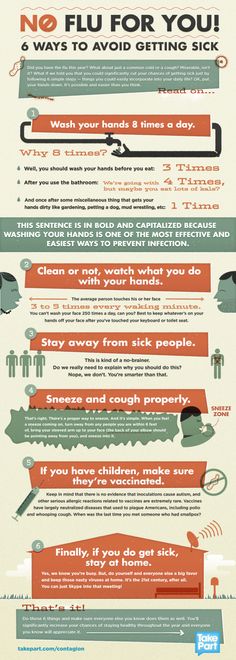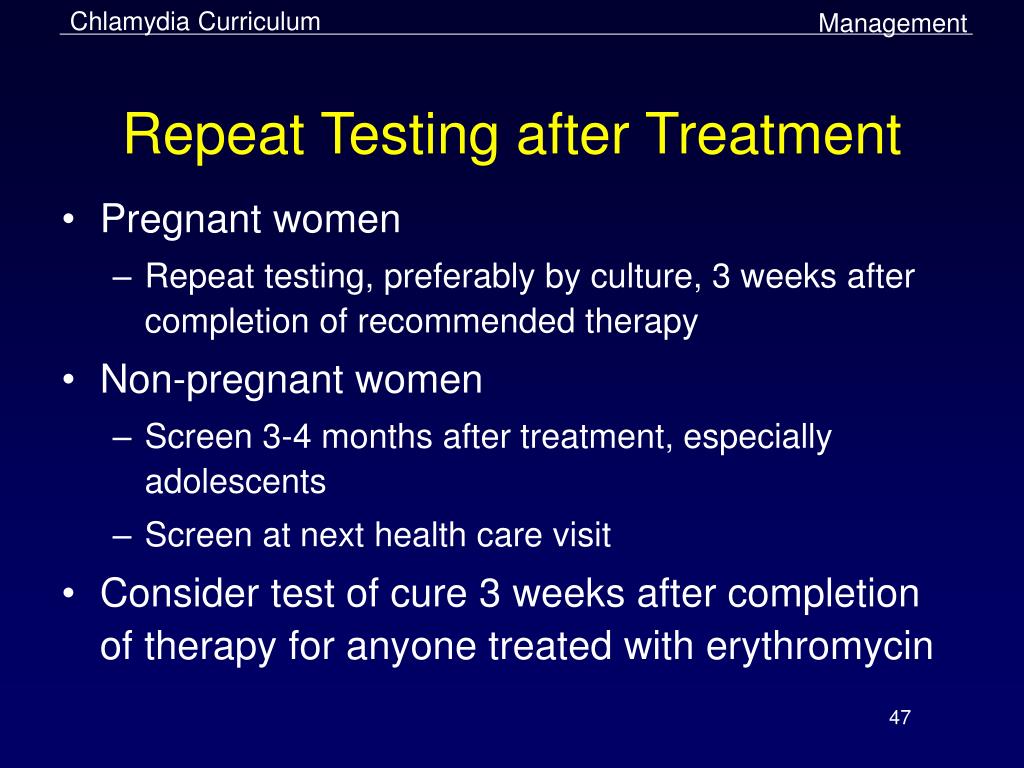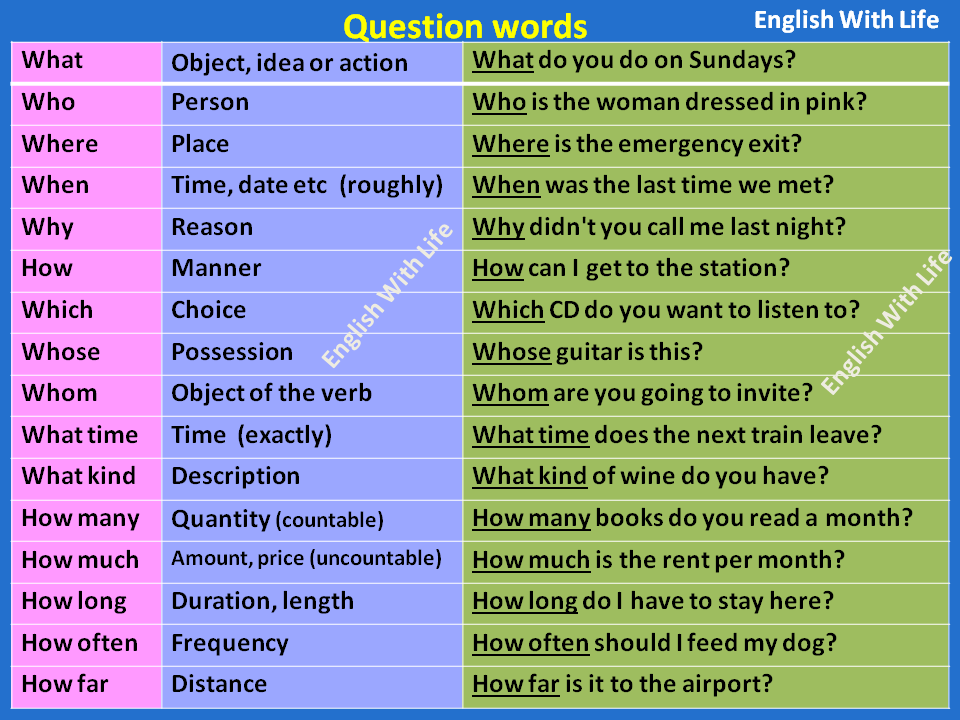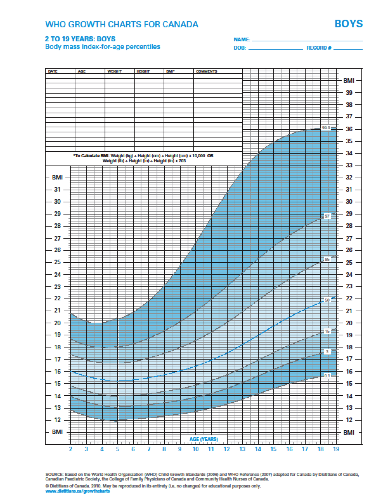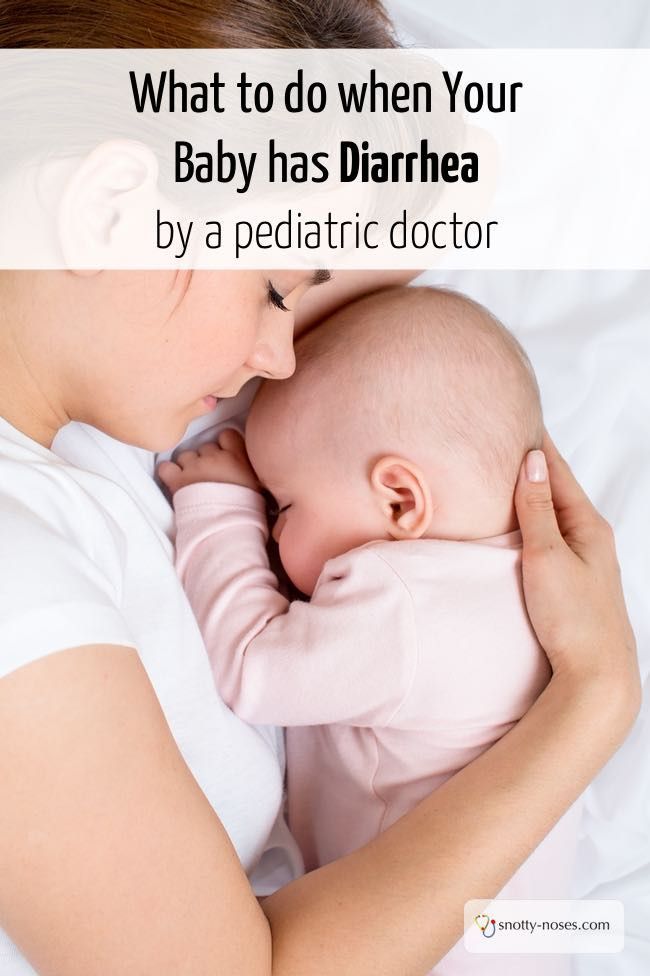Things to know in your first trimester
Everything you need to know about the first trimester (weeks 1 to 12)
Tommy's PregnancyHub
You’re pregnant: congratulations! The first weeks of your pregnancy are a vital time as your body gets busy building a baby. How exciting!
First trimester: key stages
The first trimester begins on the first day of your last period and lasts until the end of week 12. This means that by the time you know for sure you're pregnant, you might already be five or six weeks pregnant!
A lot happens during these first three months. The fertilised egg rapidly divides into layers of cells and implants in the wall of your womb where it carries on growing. These layers of cells become an embryo, which is what the baby is called at this stage.
During this trimester, your baby grows faster than at any other time. By six weeks, a heartbeat can usually be heard and by the end of week 12, your baby's bones, muscles and all the organs of the body have formed. At this point, your baby looks like a tiny human being and is now called a fetus. He or she will even be practising swallowing!
Try our Healthy Pregnancy Tool to find out everything you need to know about your pregnancy
When am I due?
Find out your due date using our due date calculator!
When will I see a midwife?
Your first midwife appointment (also known as antenatal appointment) is the 'booking' appointment. This usually happens between week 8 and 10 of your pregnancy. Find out how to register with a midwife and when your appointments will be here.
Keeping your baby safe
There are some things that you can do during pregnancy that have an effect on your baby. Find out about them by clicking the link below.
Find the complete list of pregnancy dos and don'ts (and reasons why) here
Not sure whether you are pregnant?
Find out about the symptoms that mean you may be pregnant here.
Your physical and mental health in pregnancy
We also have lots of useful tips for coping with everyday pregnancy niggles.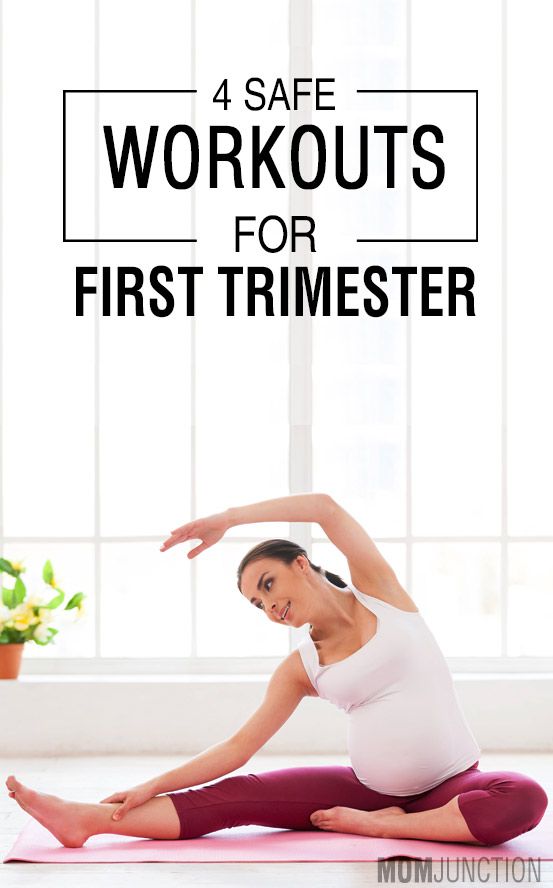 It’s common for women to experience symptoms such as morning sickness, cramp and indigestion during the first trimester.
It’s common for women to experience symptoms such as morning sickness, cramp and indigestion during the first trimester.
Don't forget that your mental health is just as important as your physical health. It's normal to feel some anxiety and stress but it shouldn't be ongoing. If what you’re feeling isn’t normal for you, talk to your GP or midwife about it. They are there to help.
Exercise, such as yoga, has been shown to reduce anxiety and is a great way to stay active during your pregnancy, too.
Read more about mental wellbeing in pregnancy
Read more about diabetes and pregnancy
Read more about pregnancy with a high BMI
Read more about exercise and pregnancy
Read about the symptoms to look out for in pregnancy
Track your baby's development
Sign up to a free pregnancy email from our midwives to track your baby's development and give you reminders of all you need to know through the 9 months of pregnancy. Click here to sign up.
Review dates
Reviewed: 28 June 2018 | Next review: 28 June 2021
This content is currently being reviewed by our team.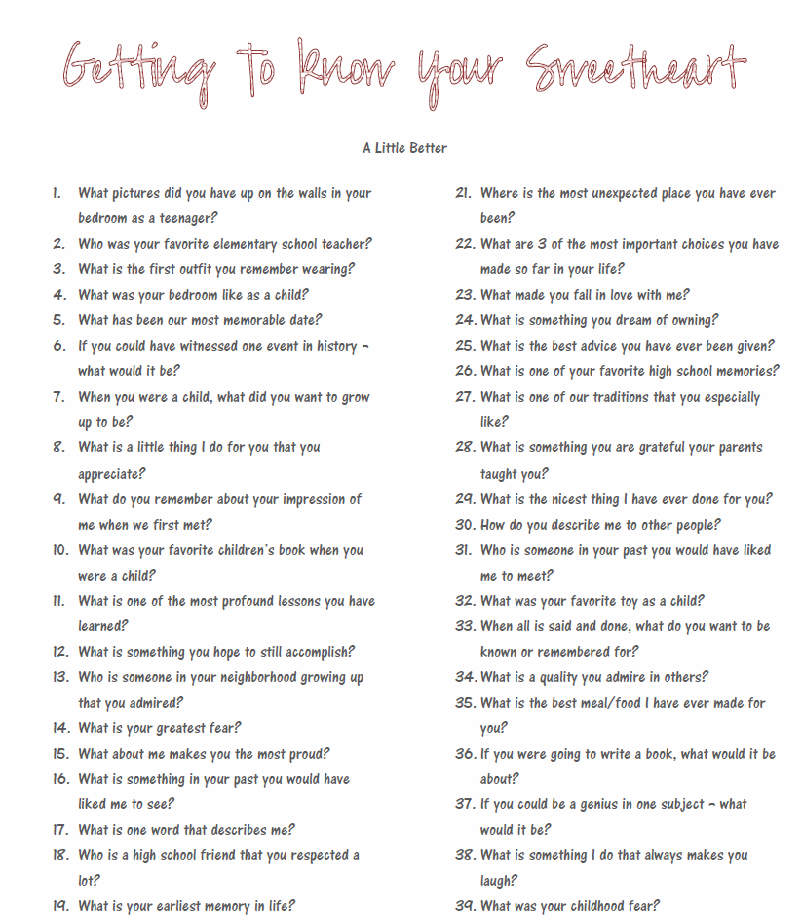 Updated information will be coming soon.
Updated information will be coming soon.
Back to top
Dos and don'ts for a safer pregnancy
Things to do during pregnancy
Take folic acid and vitamin D supplements
Folic acid significantly reduces your baby’s risk of neural tube defects, such as spina bifida.
If you are pregnant, start taking 400 micrograms of folic acid as a supplement as soon as possible until the end of the first trimester (week 12 of your pregnancy).
Some people may need a higher dose of folic acid, for example if you have diabetes or epilepsy. This is only available on prescription. Find out more about folic acid.
You are also recommended to take a Vitamin D supplement during pregnancy and during breastfeeding. This helps your baby develop healthy bones, teeth and muscles.
These 2 supplements are the only ones you need in pregnancy, alongside a healthy, balanced diet.
Find out more about pregnancy supplements.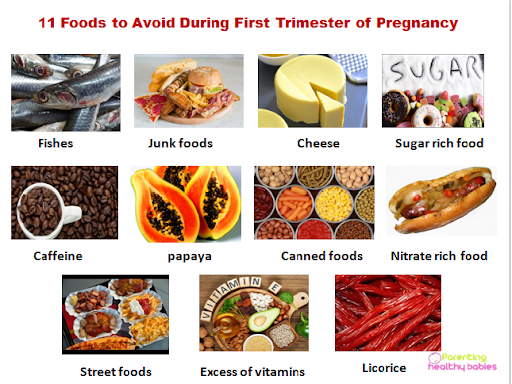
Eat well
Having a balanced diet and eating well during pregnancy means having a good variety of foods, such as fruit and vegetable, meat, cheese, potatoes, beans and pulses. This will ensure you have the energy and nutrients you and your baby need during pregnancy.
If you feel you are struggling to follow a healthy diet during pregnancy, ask your midwife or GP for support. They might be able to refer you to a dietitian to help you.
Read all about how to eat well in pregnancy.
Stay active
Staying active during pregnancy is great for you and your baby. It can help you sleep better, reduce anxiety and help you stay healthy through pregnancy.
If you were active before you became pregnant, you can continue at the same level. But listen to your body and slow down if you begin to feel uncomfortable. If you didn’t exercise much before you became pregnant, build up slowly and aim for 30 minutes each day.
Exercise does not have to be strenuous to make a difference.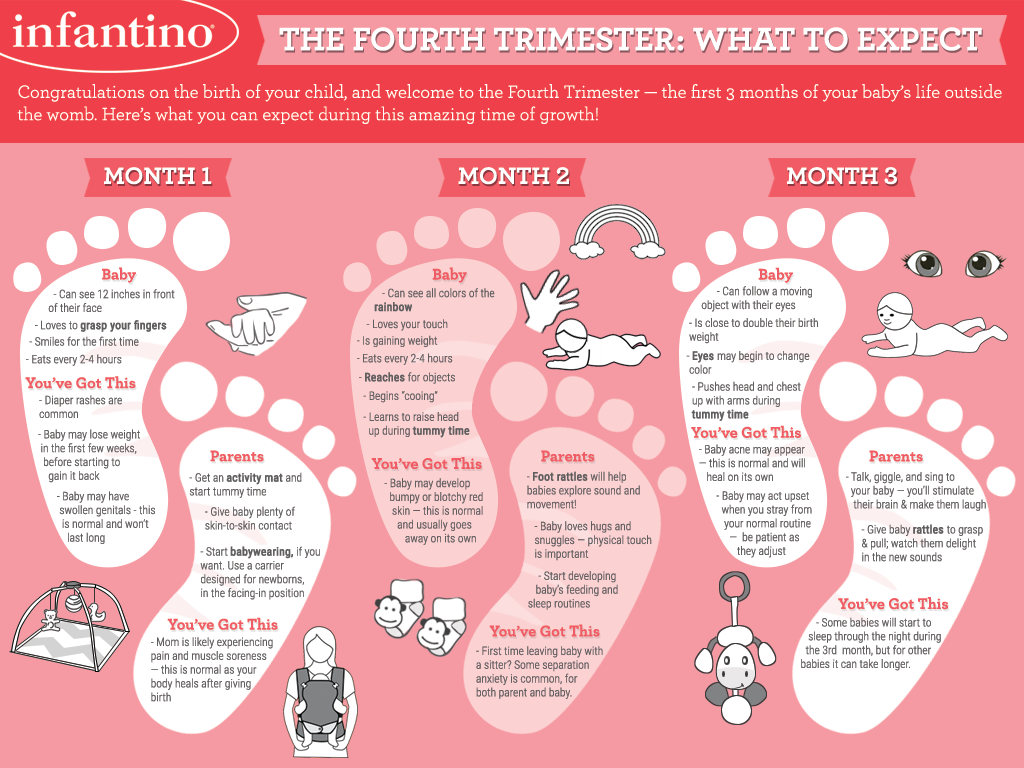 Even gentle walks are good.
Even gentle walks are good.
Read all about exercise and pregnancy.
Avoid diving or playing contact sports
Most exercise is safe and healthy to continue during pregnancy. But there are some activities you should not do.
Read about activities that are best to avoid during pregnancy.
Monitor your baby’s movements
Feeling your baby move is a sign that they are well. You usually start to feel your baby moving when you’re between 18 and 24 weeks. If this is your first baby, you might not feel movements until after 20 weeks.
The movements can feel like a gentle swirling or fluttering. As your pregnancy progresses, you may feel kicks and jerky movements.
Get to know your baby’s pattern of movements and contact your midwife or maternity unit immediately if you think these have slowed down, stopped or changed. You should feel your baby move right up to and during labour.
Find out more about monitoring your baby’s movements.
Go to sleep on your side in the third trimester
Our advice is to go sleep on your side in the third trimester because research has shown that this is safer for your baby.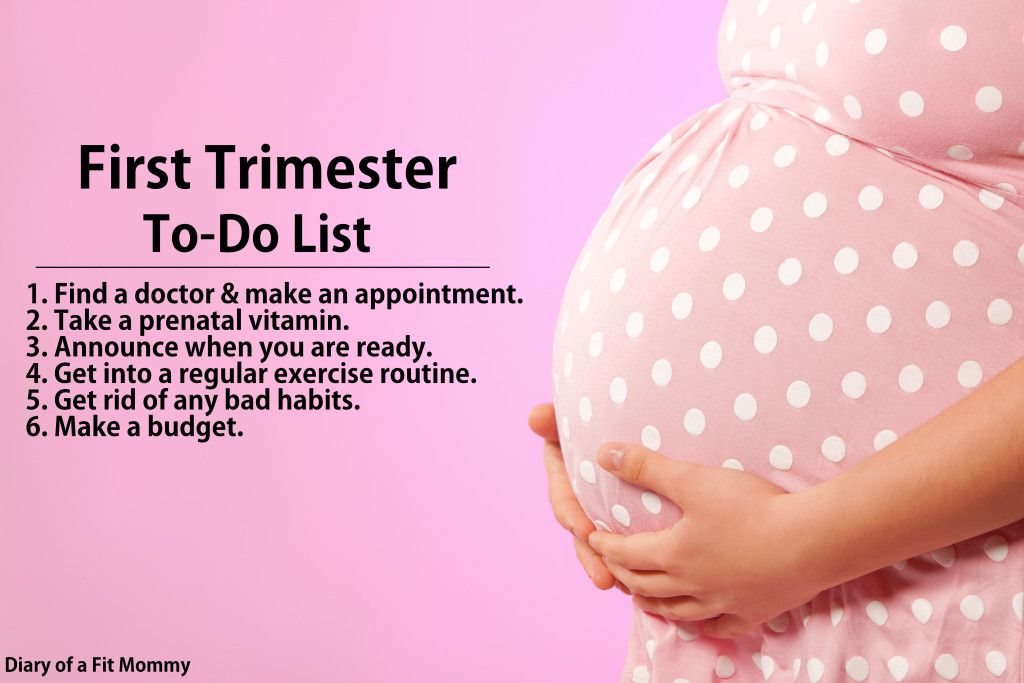 This includes night sleep and daytime naps. If you wake up on your back, try not to worry, just settle back to sleep on your side.
This includes night sleep and daytime naps. If you wake up on your back, try not to worry, just settle back to sleep on your side.
Find out more about sleeping on your side in the third trimester.
Take care of your mental health
Your mental health is just as important as your physical health during pregnancy. Being pregnant is an emotional experience and it can be normal to experience mood swings or feel low from time to time. However, it’s important that you ask for help if these feelings become unmanageable or last longer than a couple of weeks.
You won’t be judged for how you feel. As many as 1 in 5 women develop mental health issues when they are pregnant and up to a year after birth. Your pregnancy care team understand that mental health conditions can affect anyone at any time.
Find out more about taking care of your mental wellbeing during pregnancy.
Consider having vaccinations that are offered
You’ll be offered vaccinations during pregnancy.
The whooping cough vaccine
Whooping cough (pertussis) is a respiratory infection that develops into severe coughing fits. This illness can be very severe, especially in very young babies. Pregnant people are recommended to have the vaccine to protect their baby until they are old enough to have their first vaccinations.
The best time to get vaccinated to protect your baby is from week 16 up to 32 weeks of pregnancy. But you can have the vaccine anytime from 16 weeks right up until labour. However, it may be less effective if you have it after 38 weeks.
There are no recommendations in the UK for your partner to have this vaccine.
The flu vaccine (between September and February)
All pregnant people are recommended to have the flu vaccine, whatever stage of pregnancy you are at. This is because having the flu in pregnancy can cause complications, particularly in the later stages of pregnancy.
Read more about having these vaccinations in pregnancy.
Covid-19 vaccine
Pregnant people are recommended to have their COVID-19 vaccination as soon as possible. Find out more about the COVID-19 vaccine in pregnancy and breastfeeding.
Carry your pregnancy notes with you
It’s a good idea to carry your antenatal notes everywhere you go as they contain all your medical and pregnancy history. This is particularly important if you need to go to the maternity unit, especially at short notice.
Make sure you’re prepared if you travel abroad
If you’re flying abroad make sure your travel insurance covers you for any pregnancy complications and take your maternity notes with you.
Long-distance travel (more than 4 hours) may increase the risk of deep vein thrombosis (DVT) or blood clots. Try to:
- wear compression or support stockings (available from the pharmacy or the airport), which will help reduce leg swelling
- drink plenty of water
- move around often.
If you intend to fly after 28 weeks check the airline’s policy. They may ask for a letter from your doctor or midwife confirming your due date, and that you aren't at risk of complications. Find out more about flying in pregnancy.
They may ask for a letter from your doctor or midwife confirming your due date, and that you aren't at risk of complications. Find out more about flying in pregnancy.
Be aware of red-flag symptoms
There are some symptoms that should always be checked with a midwife or doctor as they could be a sign that the baby is unwell. This include:
- bleeding from the vagina
- painful urination
- sudden, sharp or continuing abdominal pain or cramps
- persistent or severe headache
- swelling in face, hands or legs
- blurred vision, spots in front of eyes
- itching, especially on hands or feet
- baby’s movements slowing down or changing
- excessive or smelly vaginal discharge or if you think your waters have broken.
You should always contact your midwife if you feel that something is wrong with you or the baby. Even if you don't know exactly what it is. It's important to trust your instincts in pregnancy.
Things to avoid during your pregnancy
Try not to ‘eat for two’
Your baby will take all they need from you as they grow, so there’s no need for extra calories in the first or second trimester.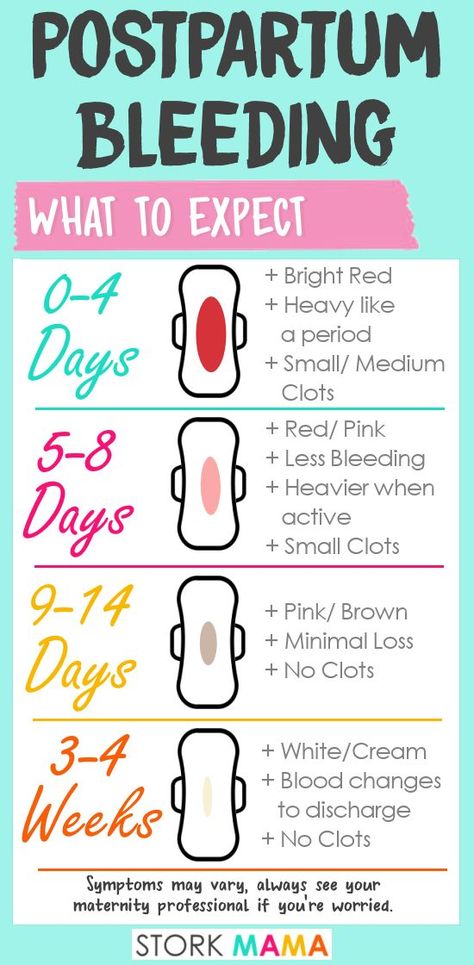 In the third trimester, you might need an extra 200 calories if you are active. This is the equivalent to around half a sandwich.
In the third trimester, you might need an extra 200 calories if you are active. This is the equivalent to around half a sandwich.
Find out more about how much to eat in pregnancy.
Avoid losing weight during pregnancy
Cutting out food groups to try to lose weight may stop your baby getting nutrients they need for growth. Instead of restricting your diet, the best thing to do is manage your weight through eating a healthy, balanced diet, with a variety of foods from each of the main food groups.
Find out more about managing your weight during pregnancy.
Avoid certain foods during pregnancy
Some foods carry a small risk of infections during pregnancy, such as toxoplasmosis or listeriosis. These infections are rare but can cause problems for your developing baby.
Take a look at our list of foods to avoid during pregnancy.
You may also find it useful to read more about how to avoid infections during pregnancy.
Avoid caffeine
High levels have been linked to pregnancy complications, so it is best to limit your caffeine intake as much as possible.
The current NHS guidelines recommend that you should have less than 200mg a day. This is about 2 cups of instant coffee.
Find out your daily caffeine intake with our caffeine calculator.
If you smoke, try to quit
If you smoke, quitting is one of the best things you can do for you and your baby.
Smoking during pregnancy increases the risk of serious complications in pregnancy, including miscarriage, stillbirth and premature birth.
Quitting smoking can be difficult, but it’s never too late to stop. Get support to quit smoking.
Avoid drinking alcohol
Drinking in pregnancy can lead to long-term harm to the baby. The more you drink, the greater the risk. There is no known safe level for drinking alcohol during pregnancy, so it’s best to avoid it completely during pregnancy.
Find out more about drinking alcohol during pregnancy.
Stay away from recreational drugs
Cocaine, meta-amphetamines, cannabis, psychoactive substances (so called ‘legal highs’) are all likely to increase risks of health problems.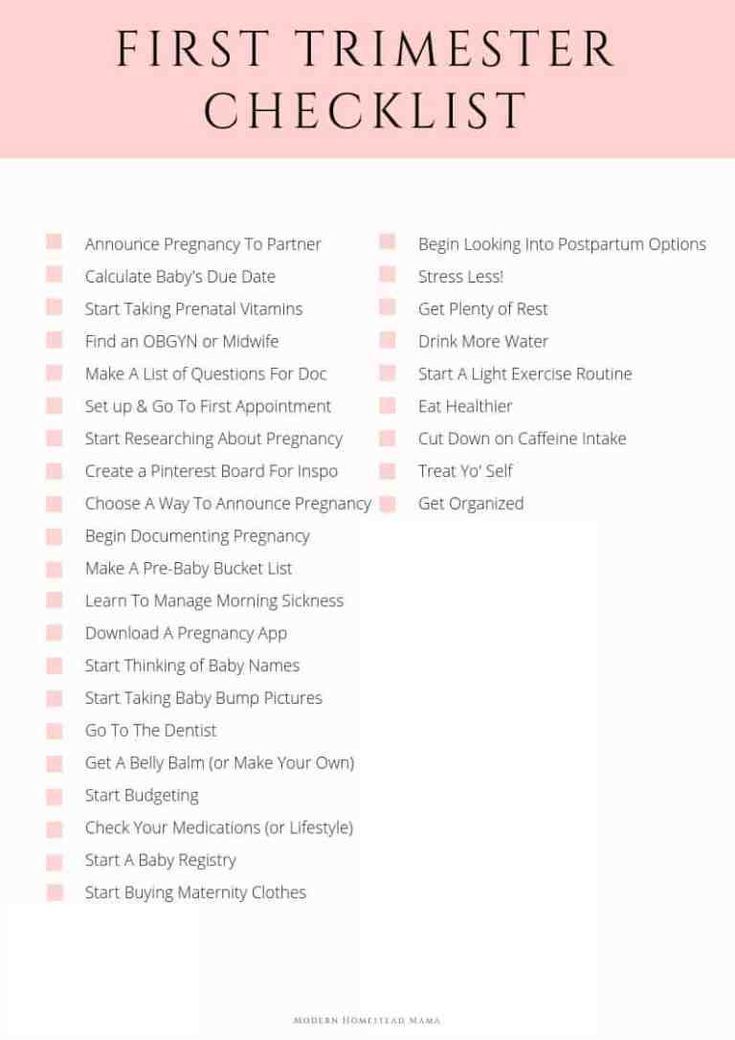
If you are taking illegal drugs, it is important to talk to your midwife or doctor. They will not judge you and can give you the right care and support during your pregnancy. The more they know, the more they can help you and your baby to get the right treatment.
You can also get confidential (they will not speak to anyone else about your drug-use) extra support from Talk to Frank.
First pregnancy, what you need to know?
The first pregnancy in a woman's life is always an important event. Information about what to expect during this period is very easy to find. But often the sources of information are not trustworthy and offer conflicting information.
Facts that expectant mothers need to know
Pregnancy normally lasts 40-42 weeks and ends in vaginal delivery or caesarean section. This period will be divided into trimesters, the first - to 13 weeks inclusive, the second - from 14 to 27 weeks, and the third - from 28 weeks to delivery.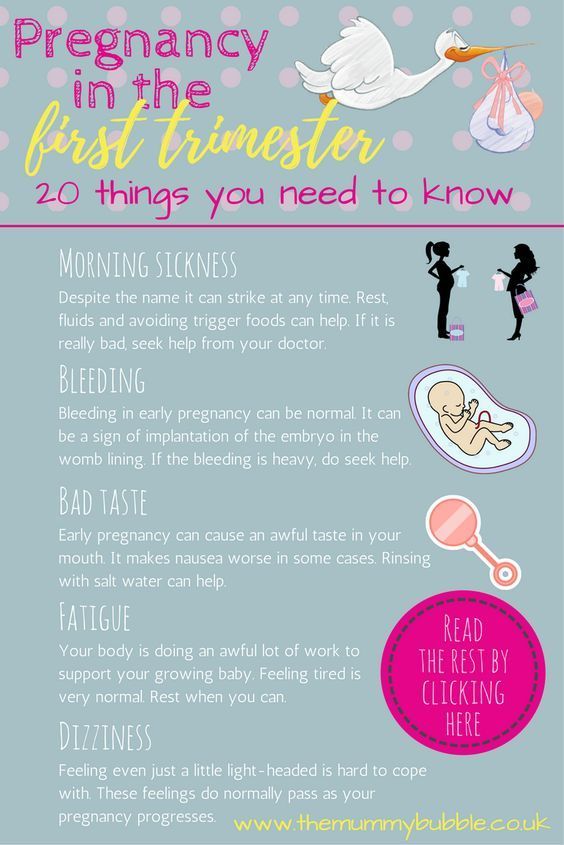 Each trimester has its own characteristics.
Each trimester has its own characteristics.
The first trimester is the most unpredictable. It can pass very easily - some women do not even notice their condition. But in the first trimester, side effects of a sharp hormonal change in the body are also possible. Morning sickness, sudden bouts of weakness, low blood pressure, irritability, increased reaction to smells - all this happens due to the fact that the hormonal background changes dramatically in the body. All of these symptoms in the first trimester are normal, but they should be told to the attending physician.
In the first trimester, the laying and formation of the fetal body takes place. Most congenital pathologies are the result of violations during this period. In order not to provoke developmental anomalies, the expectant mother should avoid pathogens. Alcohol, nicotine, a range of drugs, and toxins in the water and air can adversely affect the health of the unborn child. You should also carefully approach the choice of cosmetics and hair products.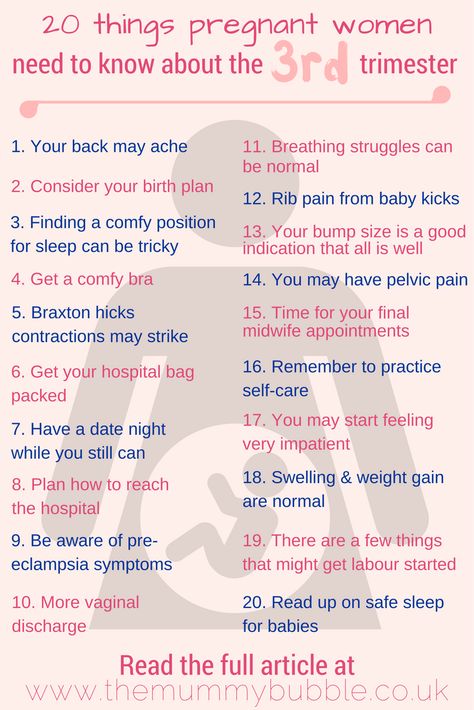
Pregnancy: first week
A woman can assume that the first week of pregnancy has begun only if she carefully prepared for the process of conception, calculated the time of ovulation, and chose the time for sexual intercourse. But even in this case, there can be no 100% certainty. For the first two or three weeks, a woman cannot independently determine whether pregnancy has occurred or not. Even if the fertilization of the egg has occurred, and the rapid process of embryo development has begun, it is still so small that it is not felt in the mother's body.
However, from the first days you can switch to a lifestyle suitable for pregnant women. It is recommended to avoid harmful foods, strong drugs, alcohol, smoking, stress; engage in gentle sports, walk in the fresh air.
In the second trimester, the fetus is almost formed and grows rapidly. At about 4.5 - 5 months, a woman begins to feel the movement of the child.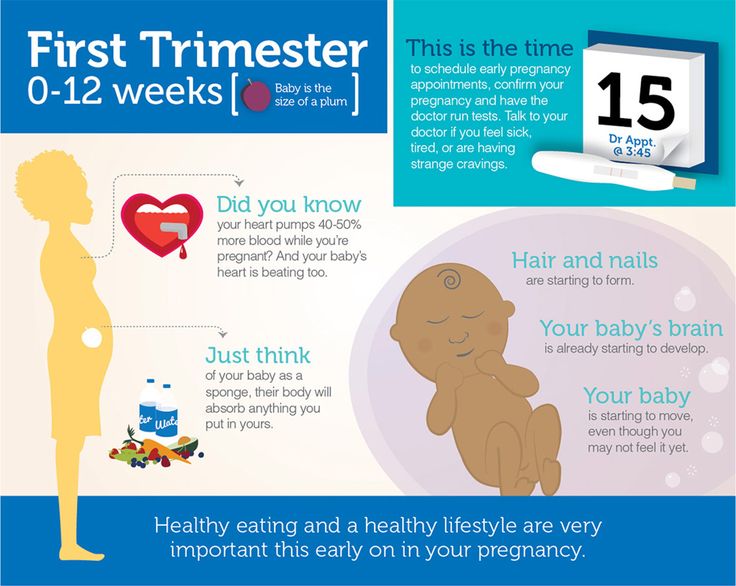 At the same time, the belly appears and begins to grow. The baby acquires the ability to hear sounds, and if the mother or father is talking to him, he can move in response. The second trimester proceeds with a minimum number of complications, this is the best period for official preparation for childbirth: choosing a clinic, paperwork, settling issues with work, and so on. By the end of the second trimester, you should pack a bag for the maternity hospital, and in addition, sign up for a course for new mothers. In such courses, women are taught not only the correct behavior in childbirth, but also the handling of a newborn baby.
At the same time, the belly appears and begins to grow. The baby acquires the ability to hear sounds, and if the mother or father is talking to him, he can move in response. The second trimester proceeds with a minimum number of complications, this is the best period for official preparation for childbirth: choosing a clinic, paperwork, settling issues with work, and so on. By the end of the second trimester, you should pack a bag for the maternity hospital, and in addition, sign up for a course for new mothers. In such courses, women are taught not only the correct behavior in childbirth, but also the handling of a newborn baby.
In the third trimester, the fetus is already formed, even with the onset of premature birth, the child can be saved. However, normal gestation up to 40-42 weeks is the best option. Due to the large and heavy belly, the expectant mother experiences inconvenience: her back may hurt, her legs may swell, and during sleep, a woman cannot calmly change her position. On the recommendation of a doctor, you can wear a bandage for pregnant women: this is a wide elastic belt that supports the stomach. The third trimester is considered the most difficult.
On the recommendation of a doctor, you can wear a bandage for pregnant women: this is a wide elastic belt that supports the stomach. The third trimester is considered the most difficult.
Whatever the course of pregnancy, it should be remembered that this is not a disease, but a natural state for a woman. Therefore, the expectant mother should lead a familiar lifestyle, excluding only that which can harm the baby. A pregnant woman can continue to work, travel, engage in her favorite hobby. This will create a good mood for the mother, and the hormones of joy, along with the bloodstream, are transmitted to the baby. The psychological comfort of the expectant mother is no less important than compliance with other recommendations.
1st trimester of pregnancy: everything you need to know | Mamovedia
The period of pregnancy, which averages 40 weeks, counted from the date of the last menstruation and measured in trimesters, months and weeks
The first trimester of covers the period from the 1st to the 12th week of pregnancy, which is approximately three months solar calendar. The second trimester starts at 13 weeks and ends at 27 weeks of pregnancy.
The second trimester starts at 13 weeks and ends at 27 weeks of pregnancy.
Finally third trimester covers the period from week 28 to due date.
The first trimester of pregnancy is the most important for the development of your unborn baby.
During this period, the embryo (as the fetus of the first 8 weeks of life is defined) develops until it weighs from 14 to 28 grams, and growth, on average, from 7.5 to 10.5 centimeters.
Until the 20th week, the length of the embryo (and then the fetus) is usually measured from the head to the end of the spine. After that, its length is measured from head to toe.
The growth of the fetus in length will occur during the third, fourth and fifth months, and the increase in its weight will fall on the last two months of pregnancy.
What are the most common symptoms of pregnancy in the first trimester?
Usually the first symptoms accompanying pregnancy are nausea, vomiting, frequent urination, fatigue, breast tenderness .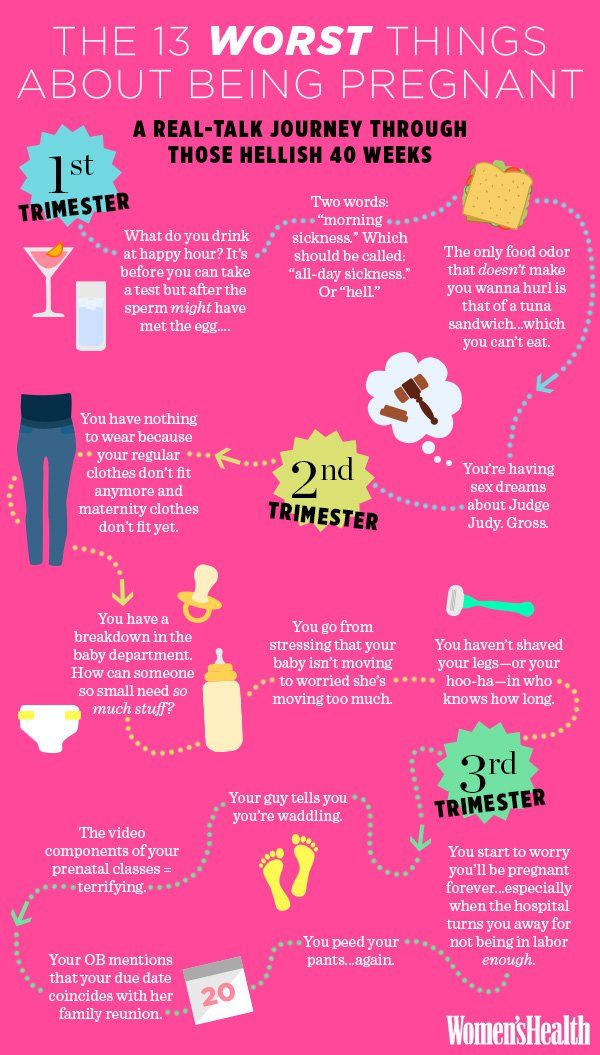 Many women begin to experience these symptoms even before a missed period or a positive pregnancy test result.
Many women begin to experience these symptoms even before a missed period or a positive pregnancy test result.
As your pregnancy progresses, you may begin to experience other symptoms such as mood swings, headaches, cramps, constipation, indigestion, bloating, food cravings or aversion, and an incredibly strong sense of smell: the latter often contributes to worse nausea.
Most of these symptoms, including mood swings and emotional outbursts, are believed to be caused by elevated levels of estrogen and progesterone.
If during this period you feel severe pain in the lower back, you have bleeding, severe nausea, it is recommended to consult a gynecologist, as these may be symptoms of a miscarriage.
First trimester weight gain
- Fetus. The weight gain of the fetus in the first trimester is negligible: at the end of the first trimester, it is actually the size of a peach.
- Expectant mother. Although the growth rate of the fetus is very subjective, the weight gain of the expectant mother by the end of the first three months should be about 1-2 kg.
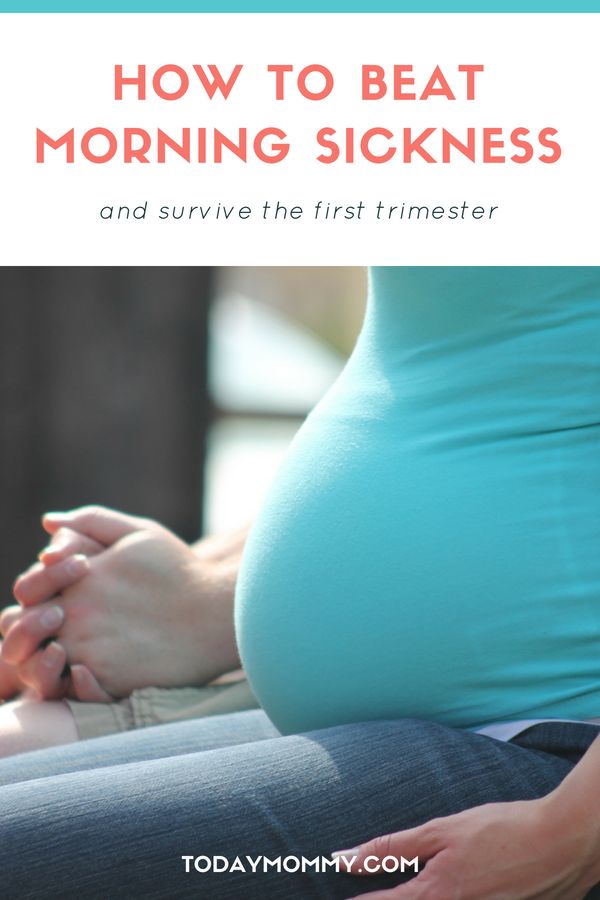
During the first three months of motherhood, you can stick to your regular diet and you don't have to eat for two!
Examinations and screening during this period
As soon as you find out you are pregnant, make your first appointment with your OB/GYN. The first examination is usually never done before the 8th week of pregnancy unless there is a risk of complications such as a history of abortion or a family history of hereditary genetic diseases. This visit is required to:
- check any abnormalities in the growing embryo,
- calculate the gestational age,
- review your medical history.
Generally recommended for all women screening for HIV, syphilis, rubella, hepatitis B, as well as asymptomatic bacteriuria, chlamydia, toxoplasmosis .
An ultrasound examination as part of prenatal screening for genetic chromosomal risks should be performed between weeks 9 and 12 , along with a blood chemistry test for beta-hCG, PAPP-A and PIGF (optional) with a genetic report.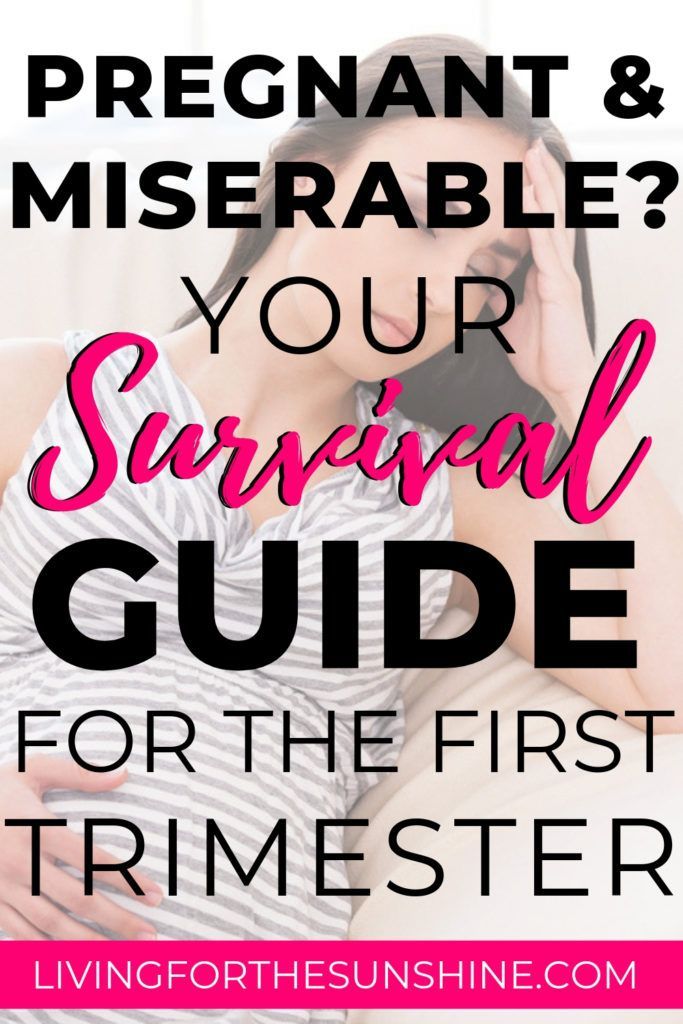 The woman must be informed of the abnormalities that may be found in order to have the choice of whether to continue the pregnancy or not.
The woman must be informed of the abnormalities that may be found in order to have the choice of whether to continue the pregnancy or not.
What does the baby look like in the 1st trimester?
At the end of the 1st month the embryo reaches the size from 2 to 5 millimeters . The heart and stomach are being formed in him, the sensory apparatus and the structure from which the nervous system will originate begin to develop. In addition, cavities for the eyes are formed and the very first sketches of future upper limbs appear.
By the end of the second month of embryonic development, the contours of the head and face begin to be drawn; nostrils, mouth, bronchi and lungs begin to form; brain grows; the very first sketches of the lower extremities appear; the upper limbs lengthen, acquiring the shape of a scoop. At this stage, the retina also begins to develop. At the end of the 2nd month, the embryo reaches a size of 2.3 centimeters and weight 15 grams .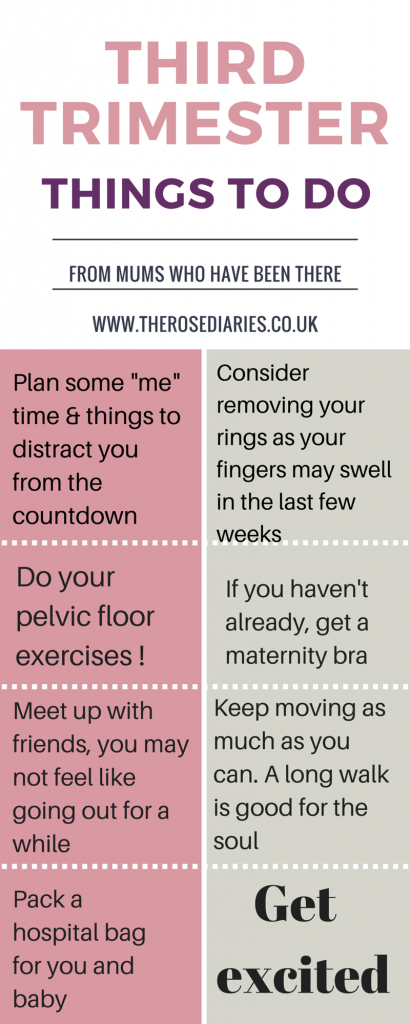 The heart of the embryo makes 110 beats per minute.
The heart of the embryo makes 110 beats per minute.
By the end of the third month, the elbows begin to bend, the eyelids and outer ear are defined, the corpus callosum appears in the brain between the two hemispheres, the formation of bones, nerves, muscles and great vessels continues. The growth of the body is observed.
A mature liver produces red blood cells and bile fluid; sketches of future external genital organs (penis in men; clitoris and labia majora in women) begin to develop, which is why it is possible to predict the future sex of the child at an early stage. Nails appear on the fingers; the intestine passes into the abdominal cavity; teeth are laid; the pancreas begins to produce insulin.
At the end of the 3rd month, the fetus measures 6.5 centimeters and weighs about 73 grams .
Things to remember in the 1st trimester of pregnancy
Most of the development of your unborn baby's nervous system occurs during the 1st trimester of pregnancy.


